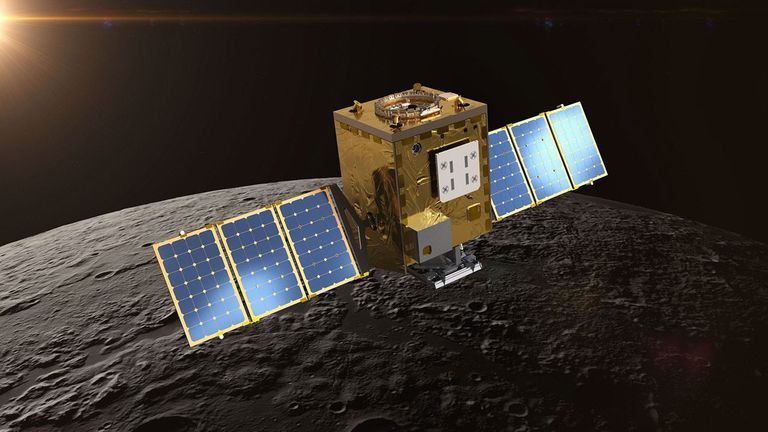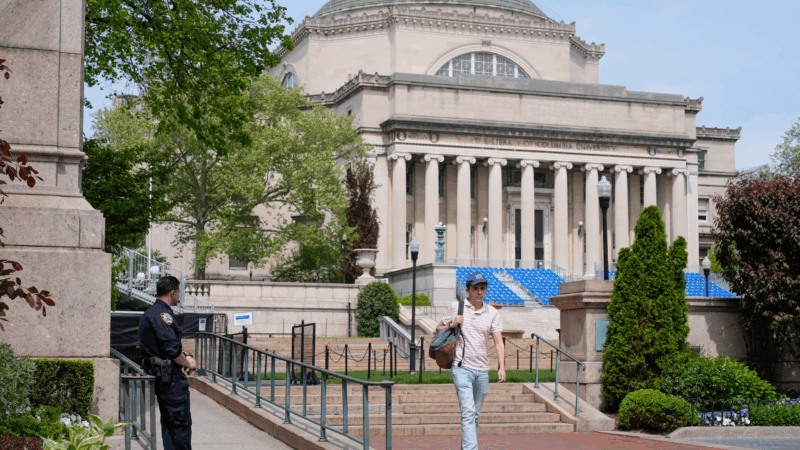How a broken nose kickstarted Diego Luna’s star-making run with the USMNT
Coming into this year, the hand-wringing about the state of the U.S. men’s national soccer team was at an all-time high: Where was the heart, the spark, the fight the Americans were once known for? And could they find it in time for next year’s FIFA World Cup?
Now, after the USMNT finished as runners-up in this year’s CONCACAF Gold Cup tournament, the answers are starting to take shape. Although the U.S. fell 2-1 against Mexico in the final, the absence of some usual players allowed an opportunity for newer faces to make their case for inclusion on next summer’s World Cup roster.
None stood out more than the 21-year-old midfielder Diego Luna, whose effort and spirit — along with three goals in six Gold Cup games — won him praise from fans, teammates and his coach. (His appearance stands out, too, with his short and stocky frame, bleach-blonde hair and neck-to-ankle tattoos.)
It has been a life-changing run for Luna, who before this run was best-known as the leading scorer on the MLS team Real Salt Lake.
And it all started with a broken nose.
Fifteen minutes into a January game, as Luna sprinted to defend against a Costa Rican player, he took an elbow to the face. Soon, blood was streaming out. On the sideline, a doctor set the broken nose back in place.
It would have been understandable for Luna to leave the game. It was a friendly, not a competitive match, and waiting for him at home was his day job with Real Salt Lake, whose preseason training schedule had already begun.

But for Luna, this was only his third appearance with the U.S. national team, and his first-ever start. He wasn’t going to give up that opportunity so easily, he said later.
With a fresh jersey and a cotton swab stuffed up each nostril, Luna ran back onto the field. A minute later, Luna sent a beautiful pass upward between the Costa Rican defense to find his teammate Brian White for the first U.S. goal of the match.
His gutsy return to the match won high praise from USMNT coach Mauricio Pochettino, who afterward told the TNT broadcast crew, “[Luna] said, ‘please, Coach, let me keep playing,'” Pochettino said. “He showed great character.”
The experience was “life-changing,” Luna told reporters in June. “It added an opportunity for me to come back to more camps and show the type of grit and the hunger that I have to play for and represent my country,” he said.
Luna played in all eight games this summer, six of them as a starter. He scored three goals — two of them in a 2-1 semifinal victory over Guatemala — and assisted on two others. When he didn’t score, his effort was still noticeable as he sprinted after loose balls and fearlessly challenged opponents.
Pochettino came on as coach last year, when U.S. Soccer fired former coach Gregg Berhalter after a disappointing early exit from the Copa América tournament.
The one-time Tottenham and Chelsea manager, Pochettino arrived with an impressive record of developing young talent. Doing that within the U.S. system was a priority for him, he said, as was reigniting a sense of pride and fight.
What Luna brings to the field is what Pochettino has been looking for, he told reporters last week.
“That attitude, hunger, desire, everything, and then, for sure, the talent … that is what we expect from our athletes,” Pochettino said. “He is desperate to play for this shirt, for the national team, and that is why now he’s in the level that he’s showing.”

The motivation comes from his upbringing, Luna says, especially his father, Alberto, who moved around the U.S. in pursuit of a career in soccer, first as a player, then as a coach.
“My parents have worked very hard for me when I was younger. Hard days for them and tough times,” Luna told reporters before the Gold Cup. “The biggest thing at the top would be able to give back to my family whatever they’ve given to me.”
“Diego is not fazed by anything,” team captain Tim Ream, the 37-year-old defender, said. “He just has something about him, that chip on his shoulder.” And, he added, a capability to “drag the rest of us into the fight.”
Two other players who made their inclusion in 2026 feel inevitable were the midfielder Malik Tillman, a 23-year-old German-American dual national with the Dutch club PSV, and the defender Chris Richards, a 25-year-old Alabama native who plays for the Premier League club Crystal Palace.
Transcript:
ARI SHAPIRO, HOST:
The U.S. men’s national soccer team was missing many of its usual players this summer at the Gold Cup tournament it lost to Mexico in the final last night, 2 to 1. But that allowed new stars to shine, with less than a year before the FIFA World Cup. NPR’s Becky Sullivan has the story of one of them.
BECKY SULLIVAN, BYLINE: Coming into this year, the U.S. men’s national team was in a bad place. The team had just fired its old coach and hired a new one to turn the squad around and to find a way to reignite the spark – the fight that the Americans were once known for. Then, all of a sudden, this past January, that spark showed back up in the form of a short, stocky, bleach blonde 21-year-old covered neck to ankles in tattoos.
(SOUNDBITE OF ARCHIVED RECORDING)
KYLE MARTINO: Diego takes an elbow right there – an accidental elbow – right in the nose.
SULLIVAN: Fifteen minutes into a match against Costa Rica, the new U.S. midfielder Diego Luna took an elbow right to the face. There was blood streaming out of his nose as he ran to a team doctor. For a few minutes, it seemed like he might have to sub out, as TNT announcer and former MLS player Kyle Martino speculated.
(SOUNDBITE OF ARCHIVED RECORDING)
MARTINO: This is an injury you could play through. I played with a broken nose – many players have – but it’s – you know, it’s January camp. He’s going back to his team. It almost looks like it’s more a discussion, does this make sense to have him go out there?
SULLIVAN: Whether it made sense or not, Luna came back in, with a fresh jersey and a cotton swab stuck up each nostril. Less than a minute later, he sent a beautiful pass right through the Costa Rica defenders and found his teammate for a goal.
(SOUNDBITE OF ARCHIVED RECORDING)
UNIDENTIFIED COMMENTATOR: As Luna slides it through. It’s Brian White, and he scores.
(CHEERING)
SULLIVAN: Afterwards, Luna was modest about the whole thing.
(SOUNDBITE OF ARCHIVED RECORDING)
DIEGO LUNA: I didn’t think it was that big of a deal on my part. I think it was just like, he broke his nose, you know? It happens in sports.
SULLIVAN: But his new coach, Mauricio Pochettino, had only the highest praise for Luna. After the game, he gave Luna a compliment I can’t repeat on NPR, but it’s one any man, I think, would be happy to receive. Luna says he was just being himself.
(SOUNDBITE OF ARCHIVED RECORDING)
LUNA: Like, I didn’t think anything of it. That’s just what I did. And to be able to have that be known and a lot of people take, you know, pride in that and show that that’s grit, that’s determination, it’s pretty cool ’cause that’s just me.
SULLIVAN: Now, he says, the broken nose changed his life. It led to his being called up for the national team again this summer, and he played in all eight games, including Sunday night’s final against Mexico – a game that had even more meaning for him because he’s Mexican American – grew up in California, watching U.S.-Mexico games with his relatives.
(SOUNDBITE OF ARCHIVED RECORDING)
LUNA: You know, half the family would be rooting for Mexico, half the family would be for USA. You know, we’d eat a bunch of food. There’d be, you know, enchiladas, hamburgers, whatever there is. You know, that’s just my soccer family. So soccer is always in our blood, and it was just part of the family routine and stuff that we did.
SULLIVAN: His dad, Alberto, played soccer professionally around the U.S., coaches for a living. Diego left home at 15 years old to join the Barcelona Residency Academy in Arizona – a full-time soccer prep school. Seeing what his parents went through to give him that opportunity is what fuels him now, Luna says.
(SOUNDBITE OF ARCHIVED RECORDING)
LUNA: I think my parents have worked very hard for me, you know, when I was younger, and, you know, hard days for them and tough times. I think that’s, you know, the biggest thing at the top, would be able to give back to my family, whatever that – whatever, you know, they’ve given to me.
SULLIVAN: His pro career started in 2021. He now plays for the MLS team Real Salt Lake. As a Mexican American, Luna had the option of playing for the Mexican national team, but he chose the U.S. instead. After Luna scored twice in the Gold Cup semifinal, Pochettino told reporters that what he loves about Luna is how he’s, quote, “desperate to wear that U.S. national jersey.”
(SOUNDBITE OF ARCHIVED RECORDING)
MAURICIO POCHETTINO: That is all that we expect from a player – that attitude, hunger, desire.
SULLIVAN: Even the most experienced veteran on the team, the 37-year-old captain Tim Ream, says Luna has brought something back.
(SOUNDBITE OF ARCHIVED RECORDING)
TIM REAM: He just has that something about him – that chip on his shoulder that was like, you know what? – this is me, unapologetically me. And let’s – you know, let’s drag the rest of us, you know, into the fight and get after it.
SULLIVAN: There’s no guarantees for anyone about making the World Cup roster next summer, but Luna’s participation now seems inevitable. Becky Sullivan, NPR News.
(SOUNDBITE OF MUSIC)
Chicagoans pay respects to Jesse Jackson as cross-country memorial services begin
Memorial services for the Rev. Jesse Jackson Sr. to honor his long civil rights legacy begin in Chicago. Events will also take place in Washington, D.C., and South Carolina, where he was born and began his activism.
In reversal, Warner Bros. jilts Netflix for Paramount
Warner Bros. says Paramount's sweetened bid to buy the whole company is "superior" to an $83 billion deal it struck with Netflix for just its streaming services, studios, and intellectual property.
Trump’s ballroom project can continue for now, court says
A US District Judge denied a preservation group's effort to put a pause on construction
NASA lost a lunar spacecraft one day after launch. A new report details what went wrong
Why did a $72 million mission to study water on the moon fail so soon after launch? A new NASA report has the answer.
Columbia student detained by ICE is abruptly released after Mamdani meets with Trump
Hours after the student was taken into custody in her campus apartment, she was released, after New York City Mayor Zohran Mamdani expressed concerns about the arrest to President Trump.
These major issues have brought together Democrats and Republicans in states
Across the country, Republicans and Democrats have found bipartisan agreement on regulating artificial intelligence and data centers. But it's not just big tech aligning the two parties.







